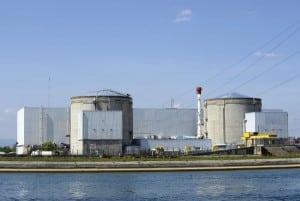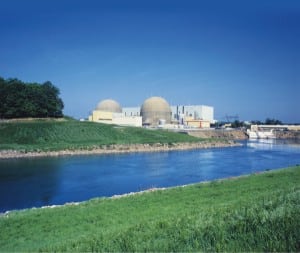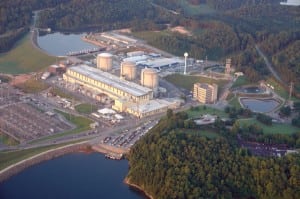Nuclear
-
Nuclear
France Considers Departure from Iconic Stance on Nuclear Energy
No other country has been as frequently cited as an example of exploiting the virtues of a nuclear-heavy energy policy as France. Deriving more than 75% of its electricity from 58 operational nuclear reactors with a total capacity of about 63 GW, France has one of the lowest costs of generation and is the world’s largest net exporter of power, earning €3 billion ($3.9 billion) a year from sales of surplus power to buyers beyond its borders. But that is all about to change.
-
Nuclear
Seismic Instrumentation at Nuclear Power Plants
When a nuclear power plant experiences ground motion due to an earthquake, an evaluation may be needed before allowing the plant to continue operating or to resume operating if it has been shut down, as was the case after the seismic event that shut down both units at Dominion’s North Anna Power Station on August 23, 2011.
-
Nuclear
Top Plant: North Anna Power Station, Louisa County, Virginia
In 2007, Dominion Resources contracted Alstom to perform steam turbine retrofits on two generating units at its North Anna nuclear power station. The Unit 1 retrofit, with its ongoing instrumentation upgrade, was the second to be completed at the North Anna plant and the fourth overall for Dominion. Completion of this project marked a significant milestone in terms of both technical achievement and investment in providing clean, safe, and reliable baseload electricity for Dominion customers.
-
Nuclear
Top Plant: Oconee Nuclear Station, Seneca, South Carolina
With license extensions for its three units in hand, Duke Energy’s Oconee Nuclear Station began a digital controls upgrade program in 2006, and in January 2010, AREVA became the first supplier to receive Nuclear Regulatory Commission approval for a safety-related digital instrumentation and controls system.
-
O&M
Dominion’s North Anna Station Sets New Standard for Earthquake Response
On August 23, 2011, at 1:51 p.m., a magnitude 5.8 earthquake knocked both units at Dominion’s North Anna Power Station off-line—the first time such an event has occurred in the U.S. After 80 days of extensive evaluation and inspection by plant staff and representatives from the U.S. Nuclear Regulatory Commission, both units were back online. What occurred during those days is a remarkable story.
-
Nuclear
What Worldwide Nuclear Growth Slowdown?
Data detailing plans for new nuclear reactors worldwide show few effects of the March 2011 Fukushima accident. China and Russia in particular continue to be hot spots for nuclear development, but cost overruns, construction glitches, and ongoing safety reviews are slowing construction projects elsewhere.
-
Nuclear
Calif. Regulator Begins Formal Investigation of San Onofre Outages
The California Public Utilities Commission (CPUC) has opened a formal investigation into the extended outages of Units 2 and 3 at the San Onofre Nuclear Generating Station (SONGS). The investigation will determine whether to remove all costs related to SONGS from the rates of Southern California Edison (SCE) and San Diego Gas and Electric (SDG&E) going forward, and whether to refund SONGS-related costs already collected in rates back to Jan. 1, 2012.
-
Nuclear
Sandy Slashes Power to Millions, Nuclear Plants in Stable Condition (Updated)
On Tuesday morning, half a day after Hurricane Sandy made landfall in New Jersey, the enormous storm, now being called a superstorm or a post-tropical cyclone, was still causing destruction far inland while as many as 6 million electric customers from Maine to North Carolina and west to Pennsylvania and West Virginia were without power.
-
Nuclear
Hitachi Acquires UK Nuclear Group
Hitachi announced on Tuesday that it had acquired Horizon Nuclear Power in a deal expected to be completed by the end of November. In another example of the global nature of the nuclear business, the Japanese firm purchased Horizon, which was developed by the UK to build new nuclear plants, from German companies RWE and E.ON.
-
Nuclear
Post-Fukushima Nuclear Power Development in China
China regards nuclear energy as a critical part of its strategic goal of achieving sustainable economic development while reducing environmental pollution. An analysis by North China Electric Power University predicts that the pace of nuclear power development may slow for a short time as a result of the Fukushima accident, but nuclear power is still a top development priority.







